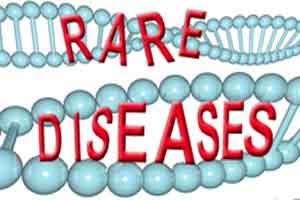- Home
- Medical news & Guidelines
- Anesthesiology
- Cardiology and CTVS
- Critical Care
- Dentistry
- Dermatology
- Diabetes and Endocrinology
- ENT
- Gastroenterology
- Medicine
- Nephrology
- Neurology
- Obstretics-Gynaecology
- Oncology
- Ophthalmology
- Orthopaedics
- Pediatrics-Neonatology
- Psychiatry
- Pulmonology
- Radiology
- Surgery
- Urology
- Laboratory Medicine
- Diet
- Nursing
- Paramedical
- Physiotherapy
- Health news
- Fact Check
- Bone Health Fact Check
- Brain Health Fact Check
- Cancer Related Fact Check
- Child Care Fact Check
- Dental and oral health fact check
- Diabetes and metabolic health fact check
- Diet and Nutrition Fact Check
- Eye and ENT Care Fact Check
- Fitness fact check
- Gut health fact check
- Heart health fact check
- Kidney health fact check
- Medical education fact check
- Men's health fact check
- Respiratory fact check
- Skin and hair care fact check
- Vaccine and Immunization fact check
- Women's health fact check
- AYUSH
- State News
- Andaman and Nicobar Islands
- Andhra Pradesh
- Arunachal Pradesh
- Assam
- Bihar
- Chandigarh
- Chattisgarh
- Dadra and Nagar Haveli
- Daman and Diu
- Delhi
- Goa
- Gujarat
- Haryana
- Himachal Pradesh
- Jammu & Kashmir
- Jharkhand
- Karnataka
- Kerala
- Ladakh
- Lakshadweep
- Madhya Pradesh
- Maharashtra
- Manipur
- Meghalaya
- Mizoram
- Nagaland
- Odisha
- Puducherry
- Punjab
- Rajasthan
- Sikkim
- Tamil Nadu
- Telangana
- Tripura
- Uttar Pradesh
- Uttrakhand
- West Bengal
- Medical Education
- Industry
Understanding Orphan Diseases: What National Rare Disease policy says

New Delhi: Rare diseases, which are often referred to as orphan diseases, are estimated to have impacted 72-96 million people in India. The Indian government has now put a National Rare Disease Policy in place and Rs 100 crore funds have been allocated towards genetic disorders.
Read Also: Govt has formulated national policy for rare diseases: Nadda
Under the policy, the Central government will contribute 60 percent towards spending on treatment, while state governments will have to bear the remaining 40 percent of the cost. The government's effort to improve diagnosis and bring better treatment and care to patients is already in progress, building on existing capabilities.
Disorders such as Thalassemia, Hemophilia, Spinal Muscular Atrophy, Duchenne Muscular Dystrophy, Fragile X, Inborn Errors of Metabolism, and Lysosomal Storage Disorders are just some frequently encountered genetic disorders, informed Dr Ratna Dua Puri, Senior Consultant, Institute of Genetics and Genomics, Sir Ganga Ram Hospital, New Delhi.
Approximately 7,000 rare diseases have been identified so far, with about 80 percent of these are genetic in origin and predominantly affect children. Even though these diseases are rare, collectively they contribute to a significant burden and affect 06-08 percent of the population. Rare diseases impose a significant societal, medical and economic burden on patients, communities and healthcare systems.
Commenting on World Rare Disease Day, Dr. Puri said, "The exact burden of rare disorders in India is not known due to the lack of epidemiological data. Currently, we do not have a standard definition for rare disorders but can extrapolate one from the current existing definitions to estimate that disorders that affect less than one in 2500 individuals are rare disorders".
The symptoms of the rare disease vary based on the disorder. For example, in Thalassemia there is chronic anemia with Hepatosplenomegaly. Rare disorders also affect the central nervous system and some have multi-systemic involvement.
"If we really want to bring change for rare disease patients and make the National Rare Disease Policy effective, the country should explore the possibility of setting up a technical body within the Ministry of Health and Family Welfare in order to effectively monitor corpus fund spending at a central and regional level, as well as taking steps to ensure the states are implementing the policy so that patients start benefitting from this great government initiative", commented Dr. Puri on the policy.
In addition, attention to generating awareness, early diagnosis and prevention are paramount for appropriate management of genetic disorders, she further noted.
Medical Dialogues Bureau consists of a team of passionate medical/scientific writers, led by doctors and healthcare researchers. Our team efforts to bring you updated and timely news about the important happenings of the medical and healthcare sector. Our editorial team can be reached at editorial@medicaldialogues.in.


